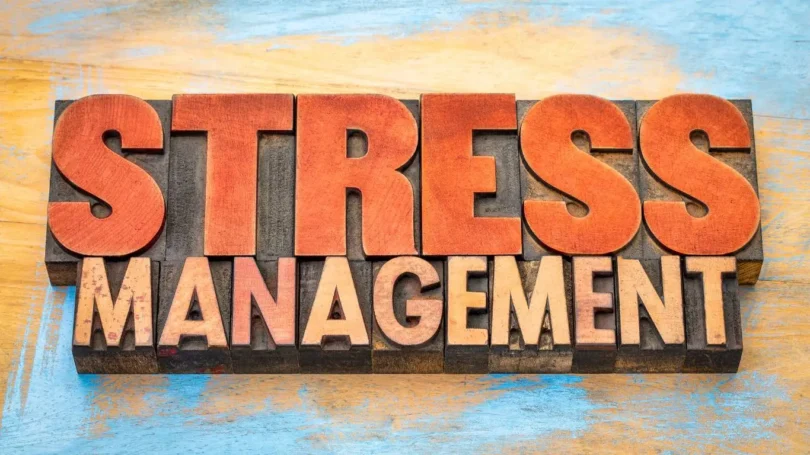Managing stress is an art. Many people deal with stress, which can affect their physical and mental health. However, you can cope well with worry by watching what you eat and working out. This post will explore how proper nutrition and regular physical activity can help you to manage stress.
Understanding Stress and Its Impact
First, it is essential to understand what stress is. Stress is the body’s response to any task or challenge. It can be caused by many things, like stress at work, money problems, or personal issues. Hormones like adrenaline and cortisol are released by your body when you are stressed. These hormones prepare your body for a ‘fight or flight’ response, a physiological reaction to a perceived harmful event, attack, or threat to survival. This reaction prepares the body to either fight the stress or flee from it. Understanding this process not only educates you but also empowers you to better manage stress in your life.
However, chronic stress can lead to different health problems. Some of these are anxiety, sadness, heart disease, and stomach problems. Therefore, managing stress is essential for maintaining good health.
The Role of Diet in Managing Stress
Diet plays a significant part in managing stress. The food you eat can affect your mood and energy levels. Here are some dietary tips to help handle stress:
Eat a Balanced Diet
Eating a balanced diet is essential for overall health. It includes a range of nutrients, such as vitamins, minerals, protein, carbohydrates, and healthy fats. These nutrients help keep energy levels and improve mood. For instance, complex carbohydrates like whole grains provide a steady energy source. Protein-rich foods like lean meat, fish, and beans help make serotonin. This neurotransmitter is key in regulating mood, appetite, and sleep. Depression and anxiety are a result of low levels of serotonin. Hence, maintaining a diet that supports its production is essential to manage stress.
Include Antioxidant-Rich Foods
Antioxidants help in fighting oxidative stress in the body. This, in turn, helps in reducing general stress levels. Include antioxidant-rich foods like blueberries, nuts, spinach, and kale in your diet. These foods help in protecting your body from the damaging effects of stress.
Stay Hydrated
Water is essential for maintaining bodily functions. Dehydration can lead to tiredness and irritability, which can increase stress levels. Therefore, staying hydrated by drinking at least eight glasses of water a day is essential. You can also include water-rich foods like cucumbers, tomatoes, and oranges in your diet.
Limit Caffeine and Sugar Intake
While coffee and sugar can provide a quick energy boost, they can also lead to crashes and increase stress levels. High caffeine usage can cause anxiety and disrupt sleep, while excessive sugar consumption can lead to mood swings. Therefore, limiting the intake of caffeinated beverages and sugary snacks is recommended.
Incorporate Omega-3 Fatty Acids
Omega-3 fatty acids have been shown to reduce inflammation and improve brain performance. They also help lessen stress and anxiety. Include foods rich in omega-3 fatty acids in your diet, such as salmon, walnuts, flaxseeds, and chia seeds.
Eat Regular Meals
Skipping meals can lead to low blood sugar levels, which can cause irritability, fatigue, and higher stress. Therefore, eating regular meals and including healthy snacks in between is essential. Healthy snacks like a piece of fruit, a handful of nuts, or yogurt can help maintain steady blood sugar levels and energy throughout the day, reassuring you that you control your stress levels.
The Role of Exercise in Managing Stress
Exercise is another effective way to manage stress. Physical exercise helps in releasing endorphins, which are natural mood lifters. Here are some exercise tips to help handle stress:
Engage in Regular Physical Activity
Regular physical exercise is a powerful tool to reduce stress levels. It can be as easy as walking, jogging, or cycling. Aim for at least 30 minutes of moderate-intensity exercise most days of the week. This consistent commitment to your exercise routine helps release endorphins and improves your general mood, keeping you motivated and stress-free.
Try Mind-Body Exercises
Mind-body exercises, such as yoga and tai chi, are forms of physical activity that combine physical postures, breathing techniques, and meditation or relaxation. These exercises promote relaxation and mindfulness, which can help lower stress levels.
Practice Deep Breathing Exercises
Deep breathing exercises help lower stress by promoting relaxation. Take a few minutes each day to practice deep breathing. Inhale deeply through your nose, hold for a few seconds, and release slowly through your mouth. This helps lower heart rate and calm the mind.
Include Strength Training
Strength training routines, such as lifting weights or resistance bands, help build muscle and improve overall strength. They also help lower stress by releasing endorphins. Aim to include strength training routines at least two days a week.
Participate in Group Activities
Participating in group activities like team sports, group fitness classes, or even regular walks with friends can help lower stress by promoting social interaction and support. It also gives a sense of community and belonging, which can be beneficial for managing stress.
Find an Exercise You Enjoy
Finding an exercise you enjoy is crucial for maintaining consistency. It can be dancing, swimming, hiking, or playing a sport. When you enjoy the activity, you are likelier to stick with it, which not only helps you handle stress effectively but also keeps you engaged and motivated in your fitness routine.
Combining Diet and Exercise for Stress Management
Combining a healthy diet with regular exercise can significantly lower stress levels. Here are some tips to help you combine both into your routine:
Plan Your Meals and Workouts
Planning your meals and workouts can help you maintain consistency. Prepare a weekly meal plan that includes balanced, healthy meals and snacks. Similarly, plan your workouts for the week. This helps you stay prepared and reduce stress.
Stay Consistent
Consistency is important to managing stress through diet and exercise. Make it a habit to eat healthy meals and exercise in regular physical activity. Even on busy days, try to find time for a quick workout or a healthy snack. Consistency helps maintain steady energy levels and reduce stress.
Listen to Your Body
Pay attention to how your body responds to different foods and workouts. If certain foods or activities raise your stress levels, try to avoid them. Instead, focus on foods and things that make you feel good and reduce stress.
Practice Mindful Eating
Mindful eating is a practice that involves paying full attention to the experience of eating and drinking, both inside and outside the body. It includes paying attention to your food’s taste, texture, and aroma and avoiding distractions like watching TV or using your phone while eating. This practice can help you enjoy your meals and lessen stress.
Take Breaks
Taking breaks throughout the day is essential for reducing stress. Take a few minutes to stretch, walk, or practice slow breathing. This helps in relaxing your mind and body. Incorporate short breaks into your daily routine to manage stress successfully.
Seek Professional Help
If you struggle to manage stress through diet and exercise, seek professional help. A nutritionist or a fitness trainer can provide personalized help and direction. They can help you create a diet and exercise plan that fits your needs and lifestyle.
Managing stress through food and exercise is an effective and natural way to improve your health. Eating a balanced diet and engaging in regular physical exercise can greatly reduce stress levels. Remember to stay constant, listen to your body, and seek professional help if needed. Start incorporating these tips into your schedule today and experience the benefits of a stress-free life.
We can guide you on your way to a healthy future. Visit our Blog to learn more.


Leave a Reply